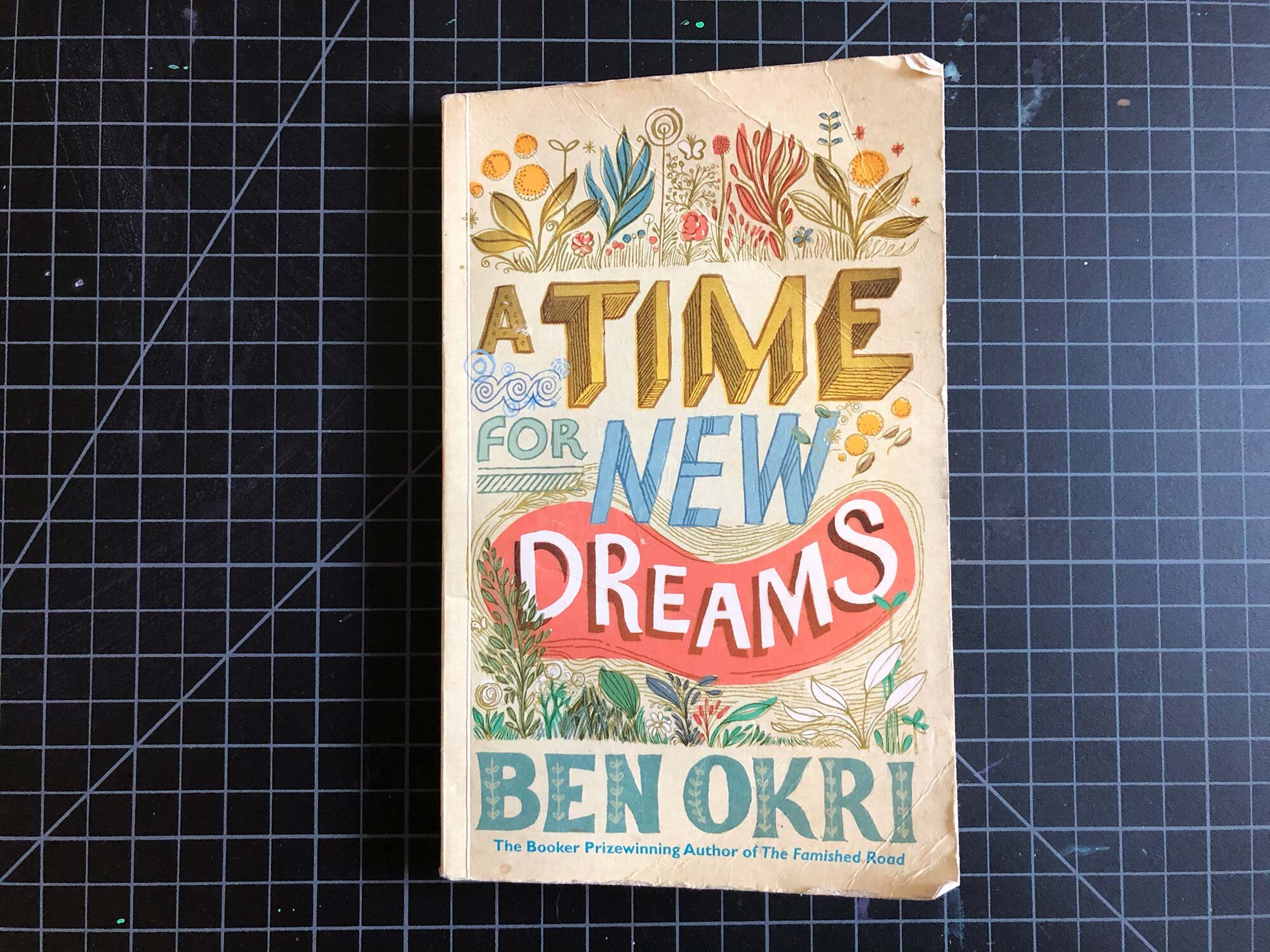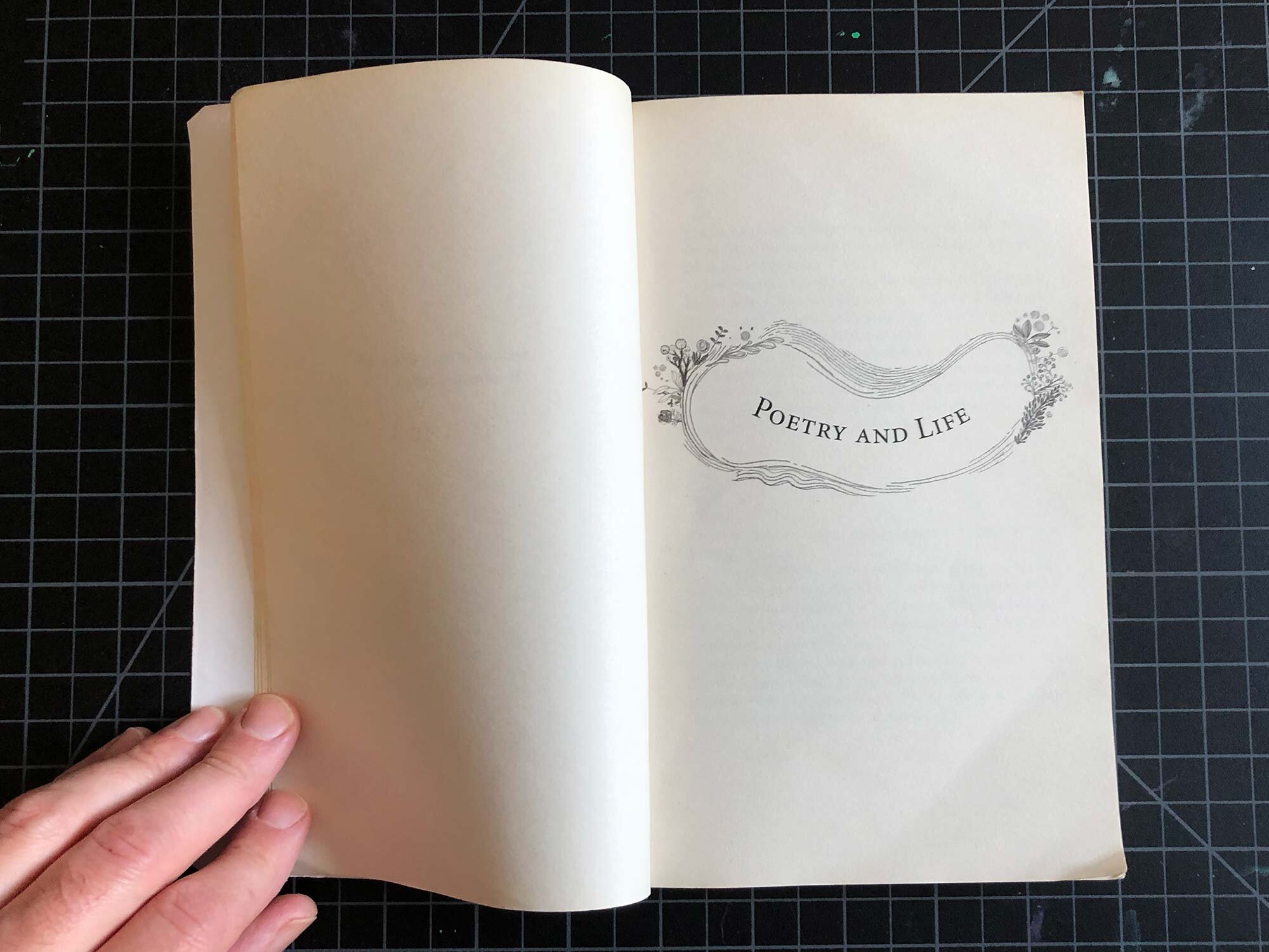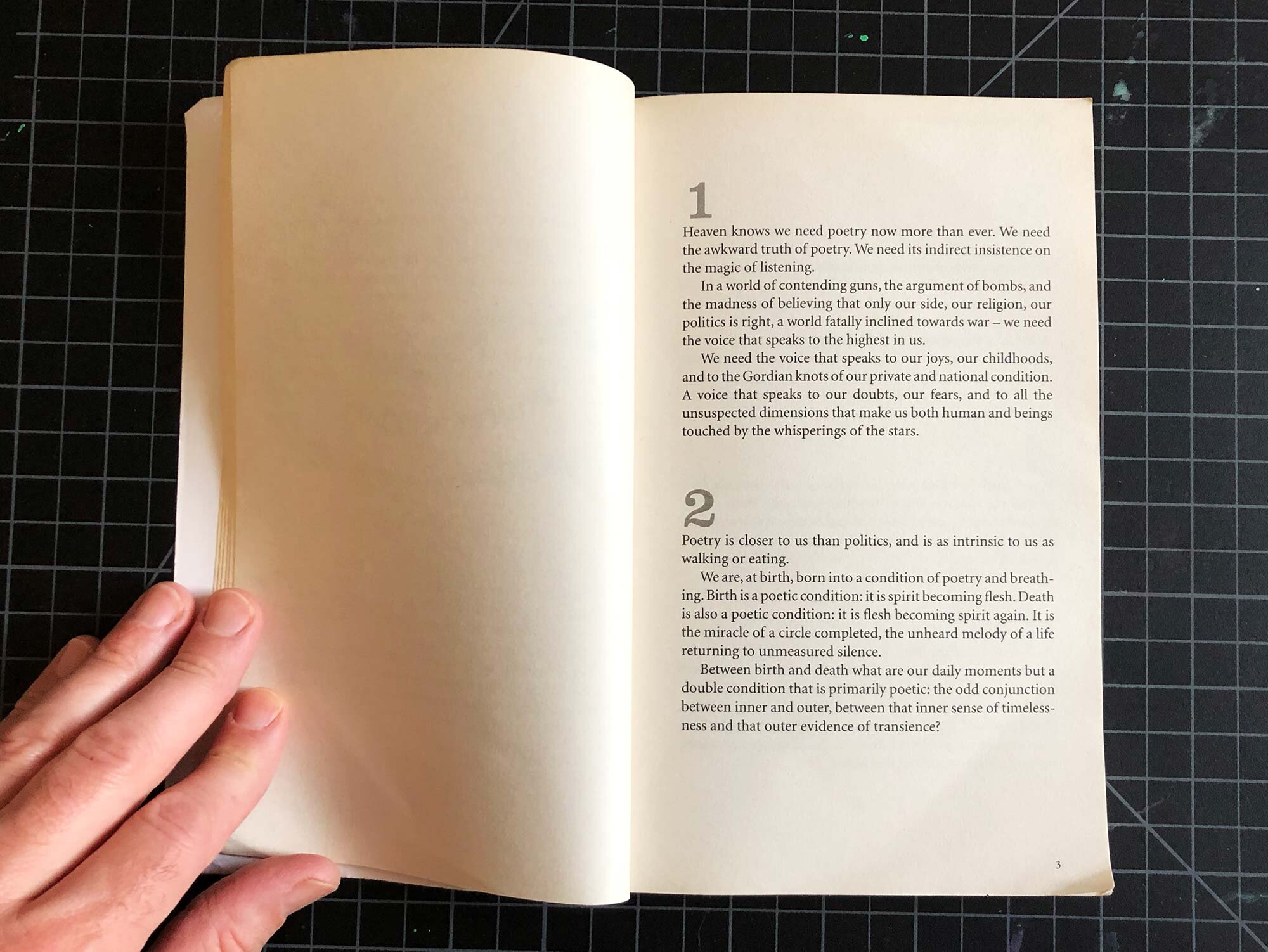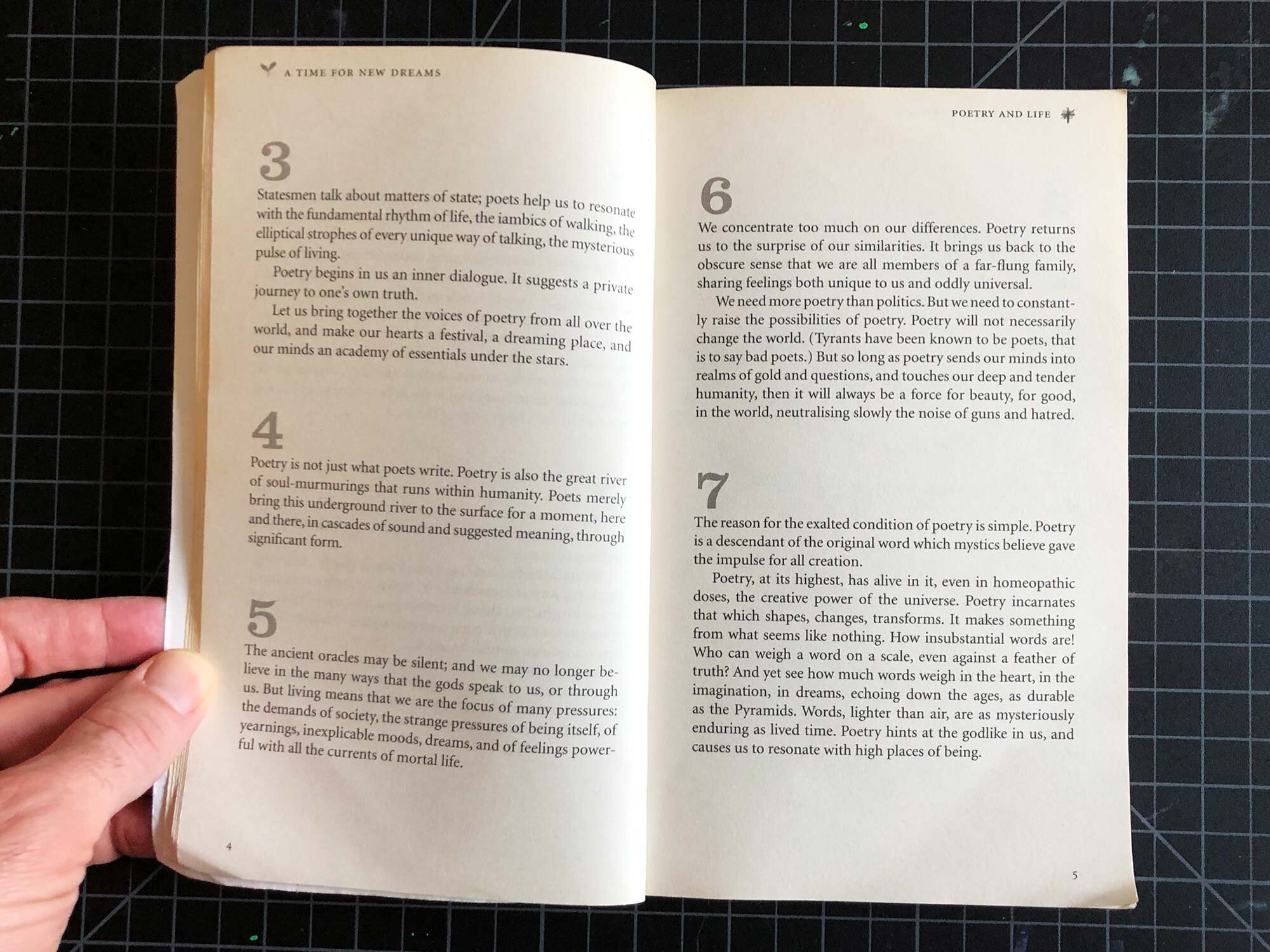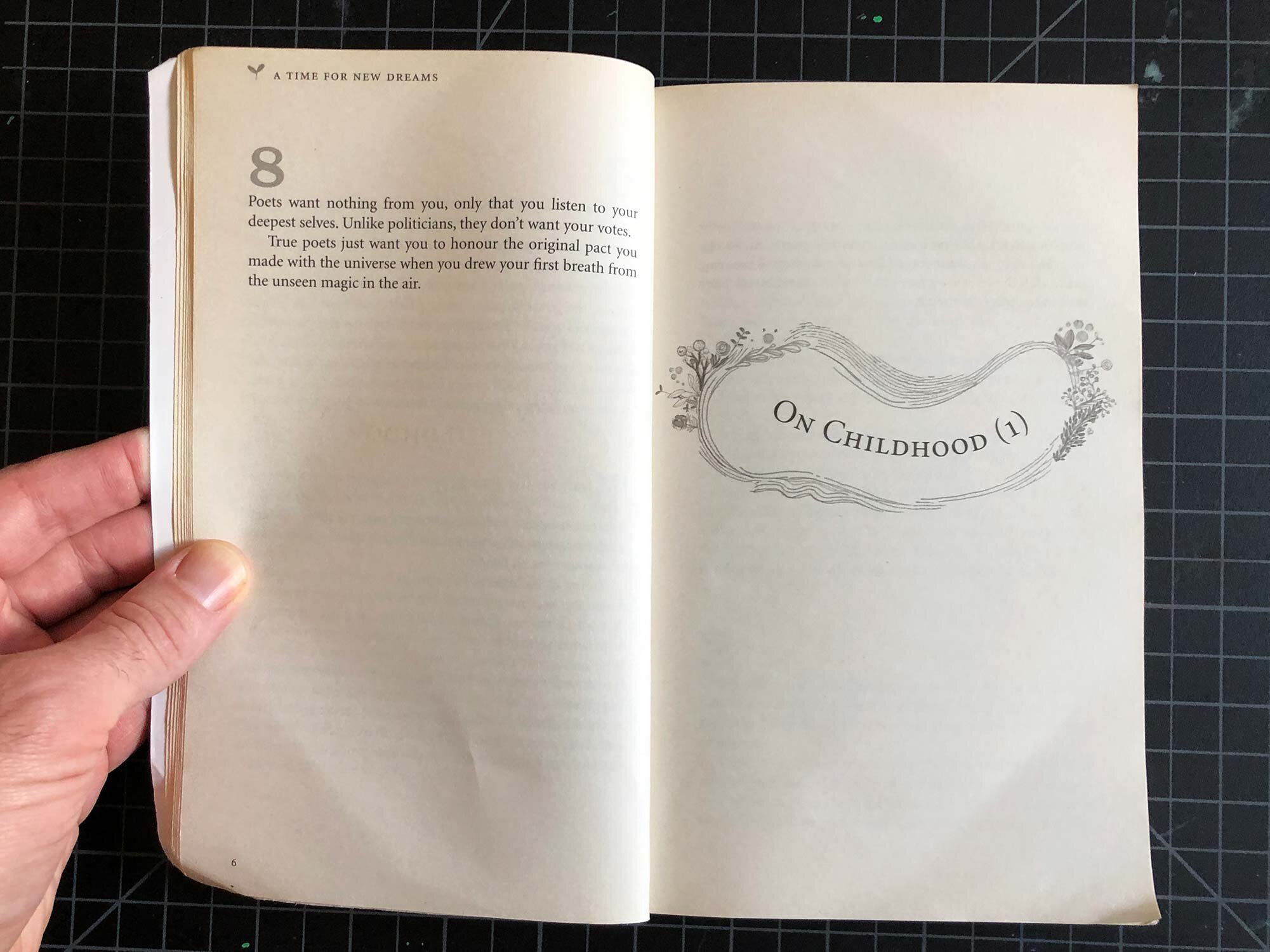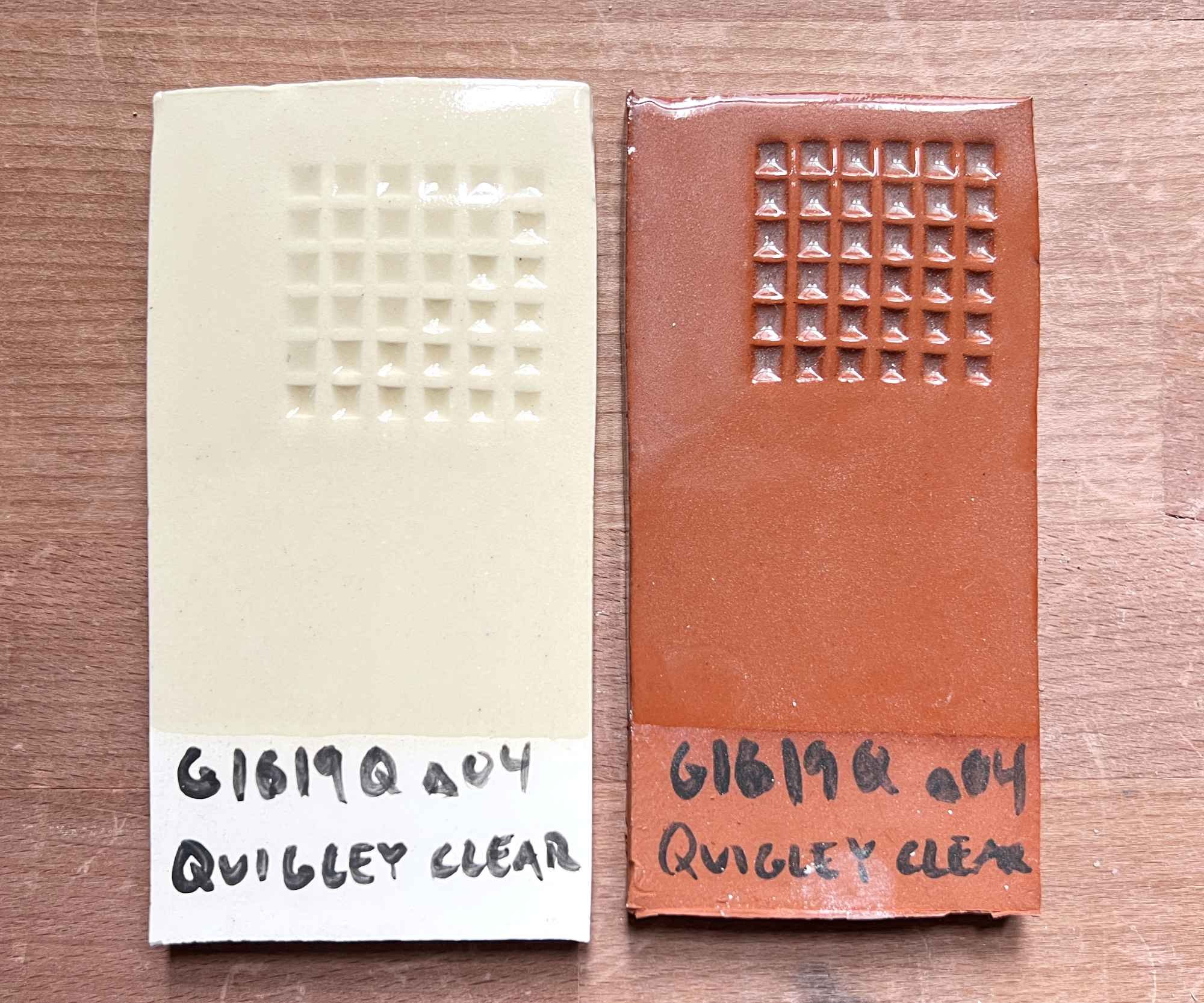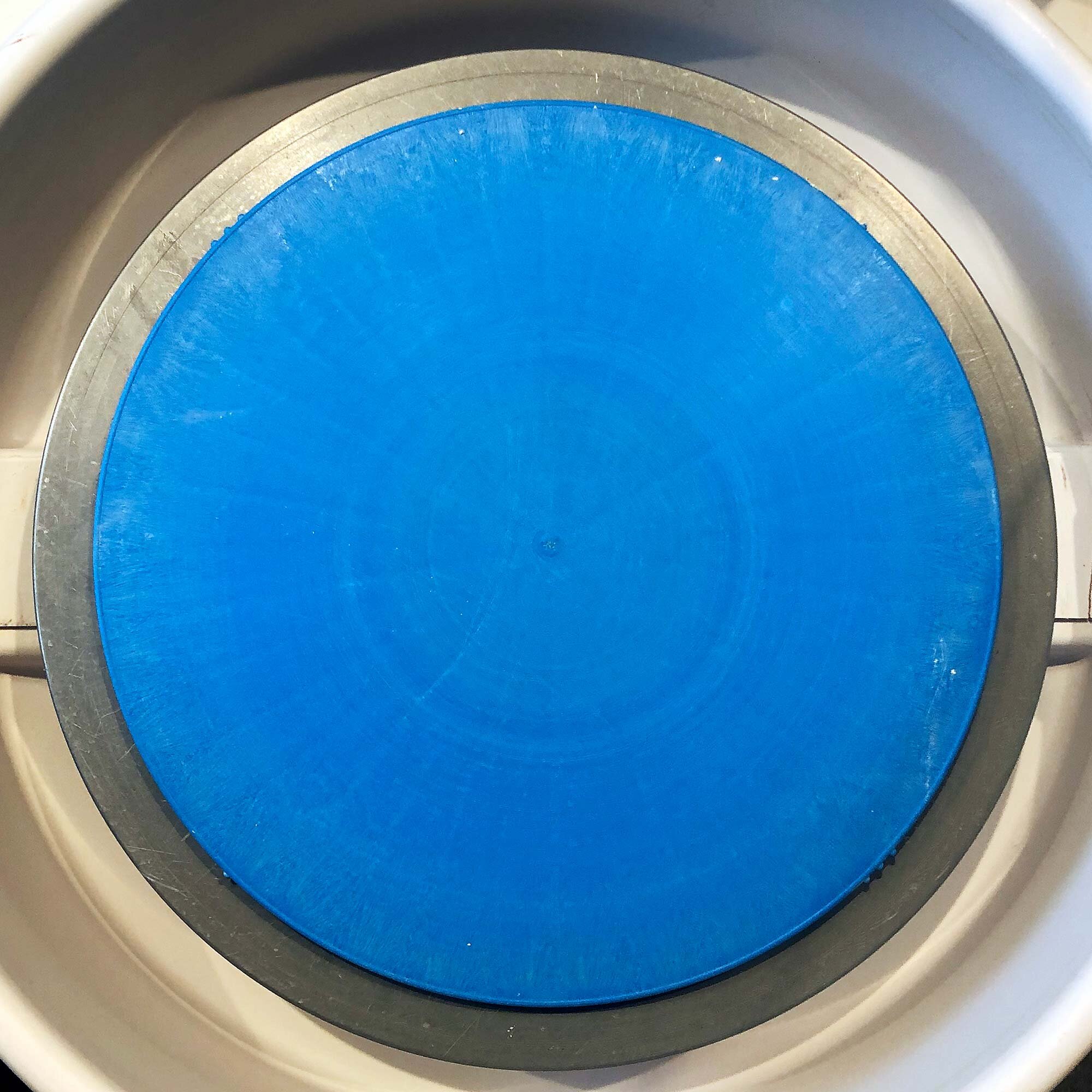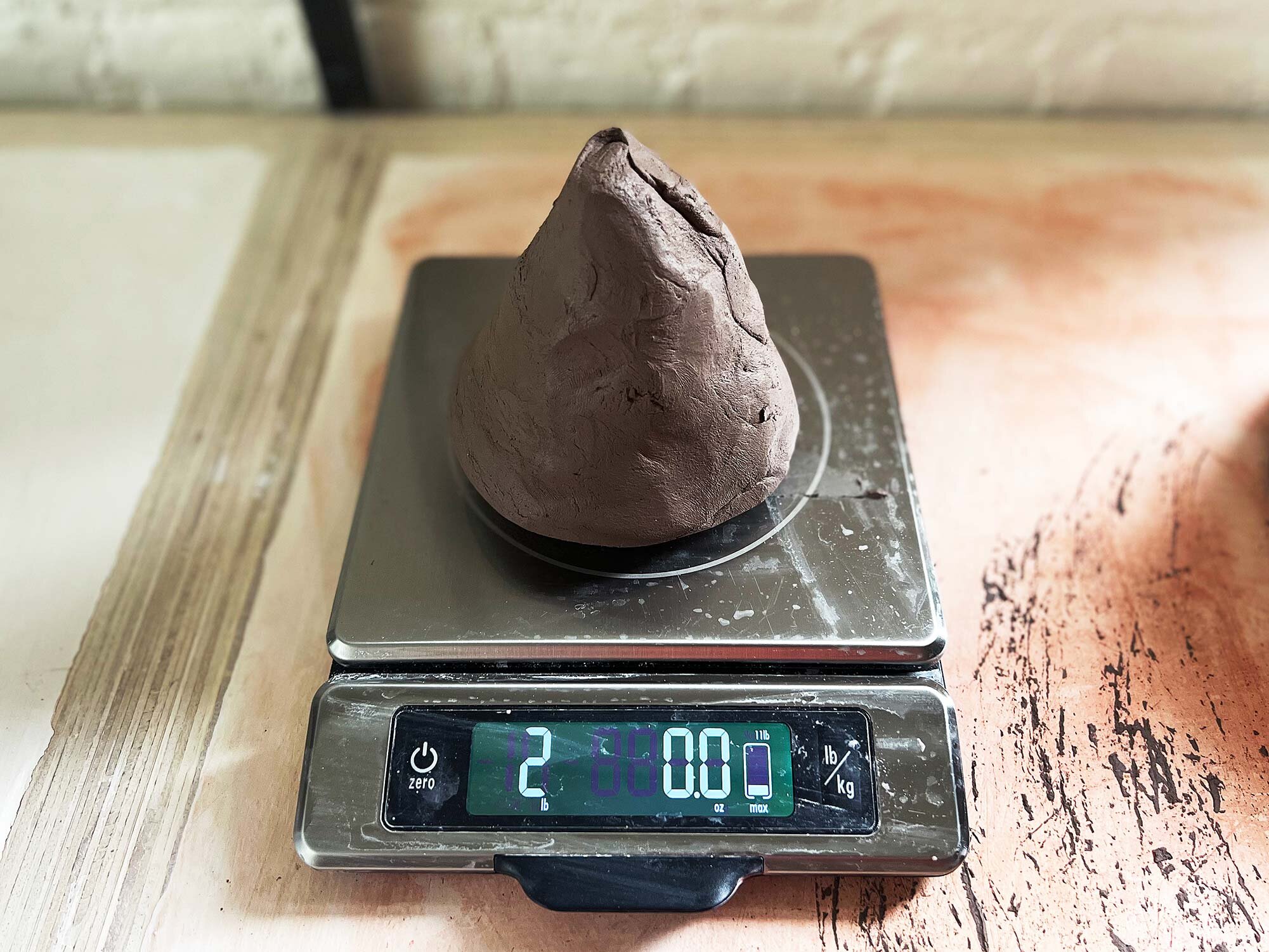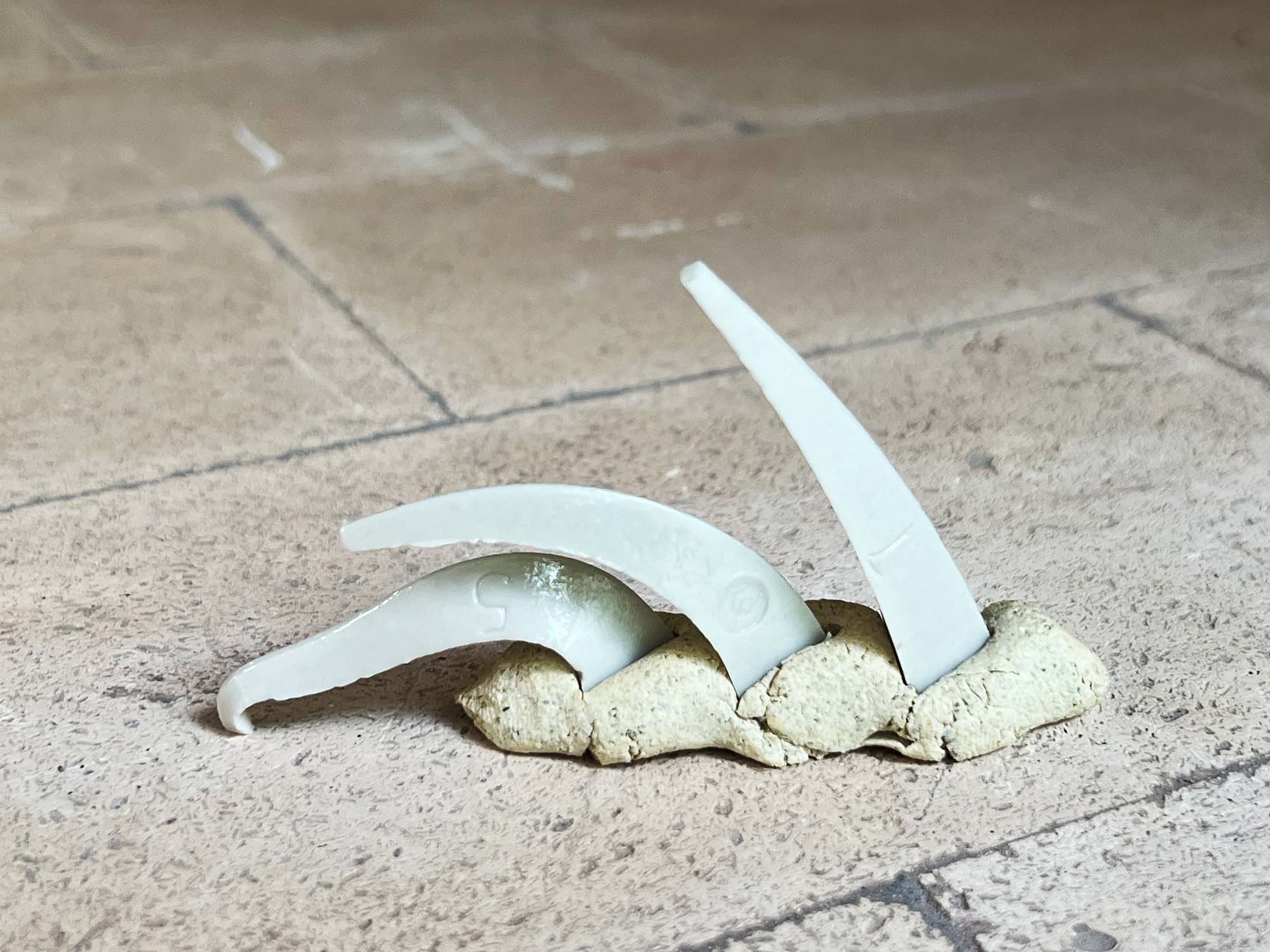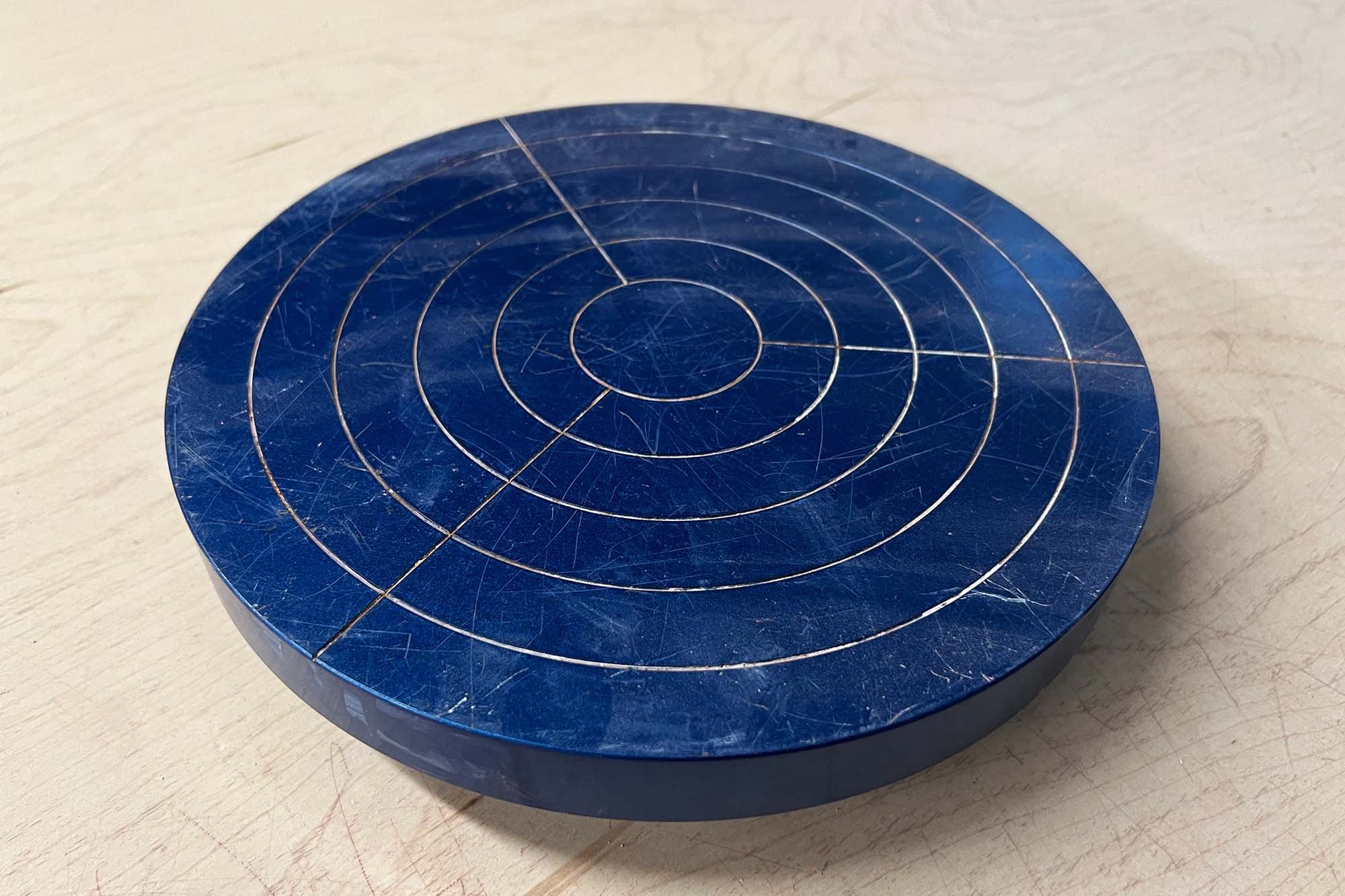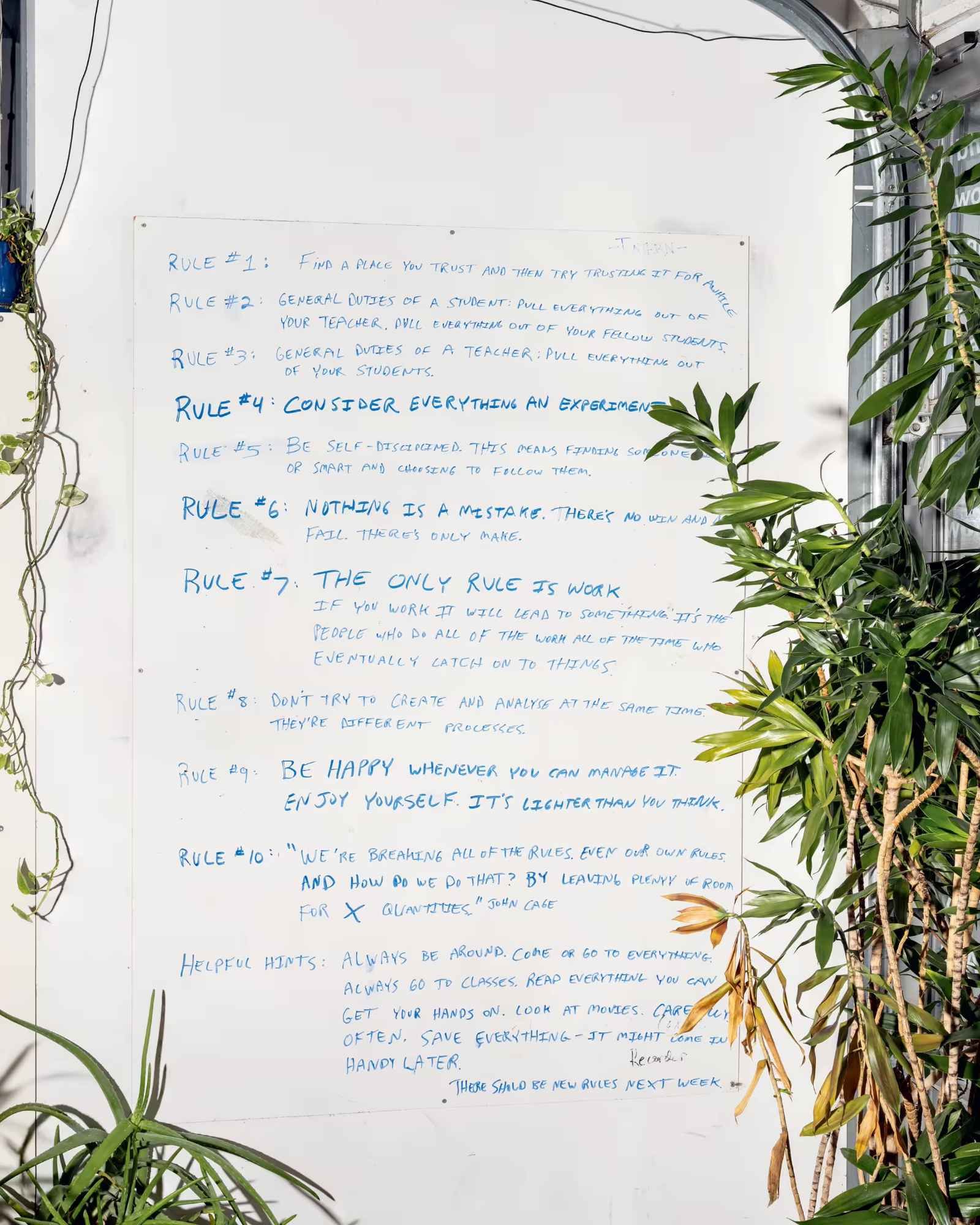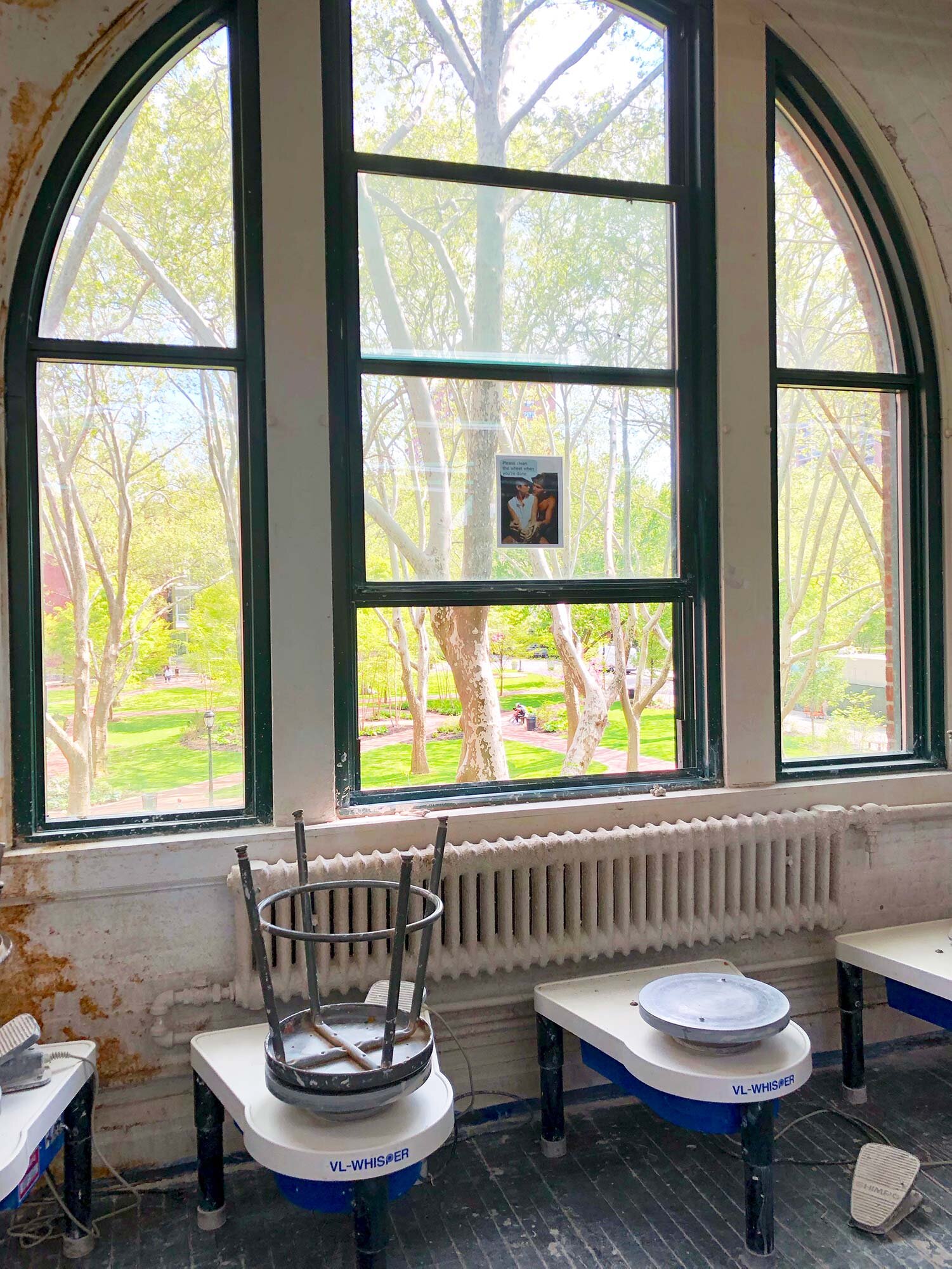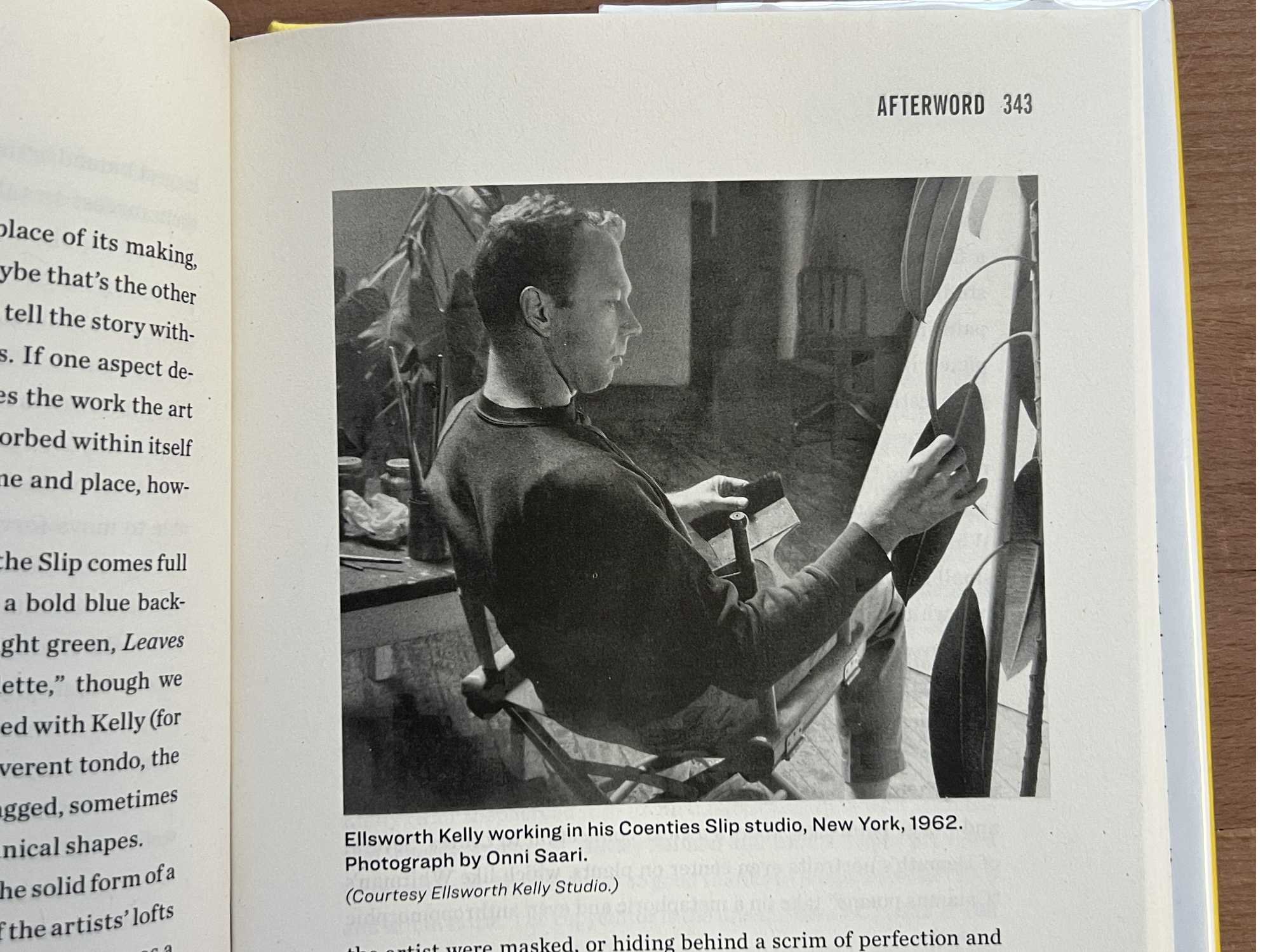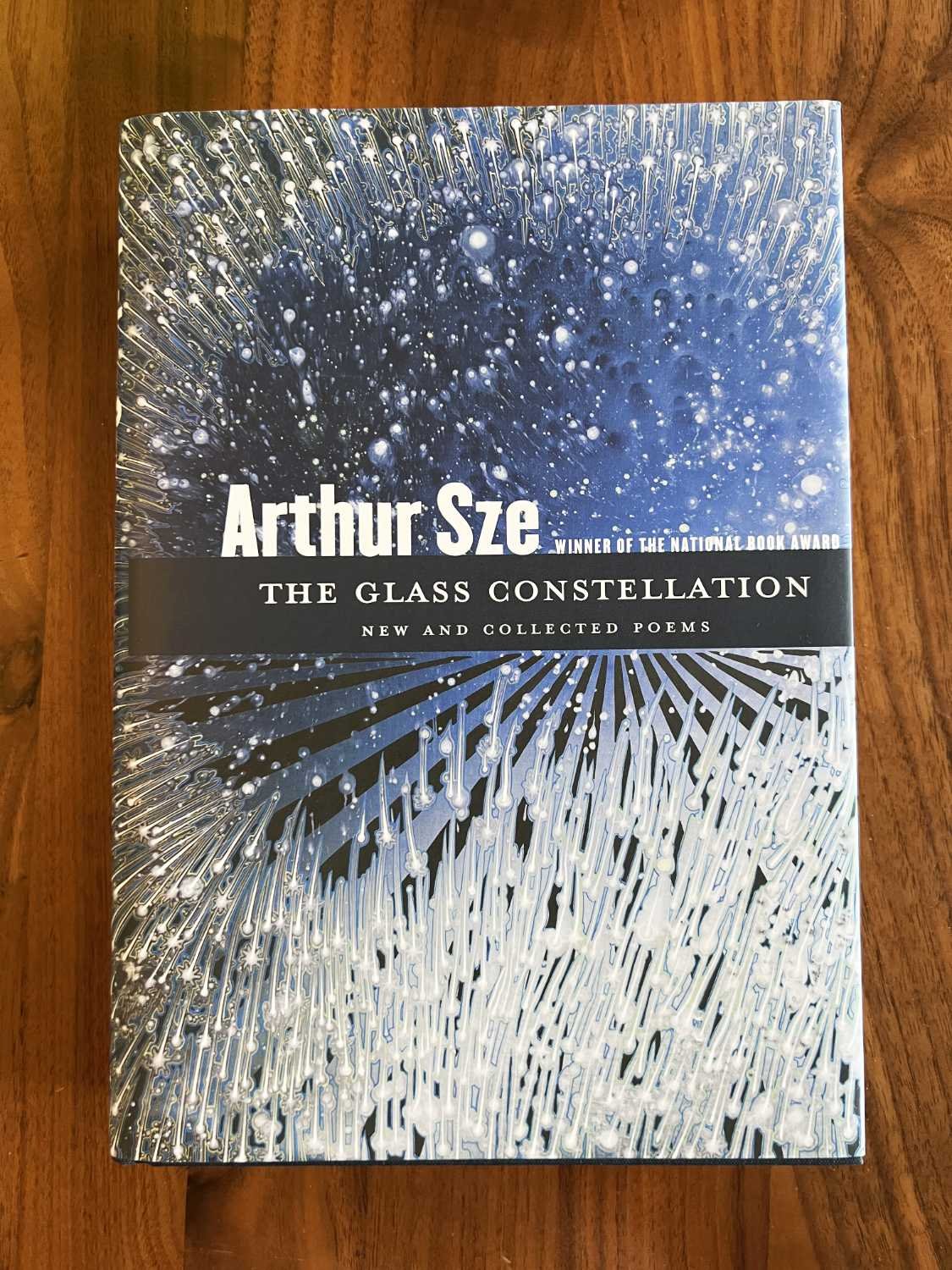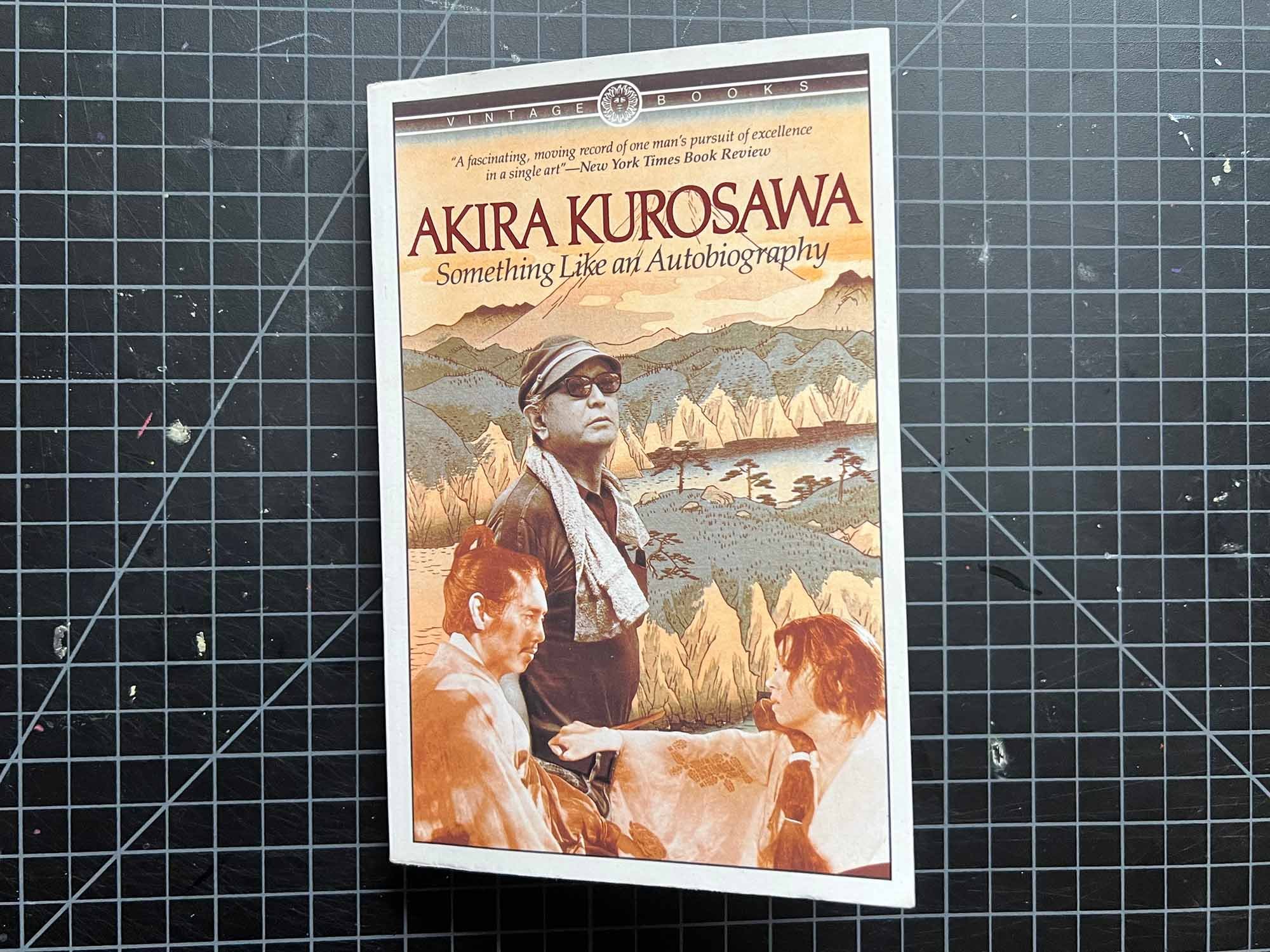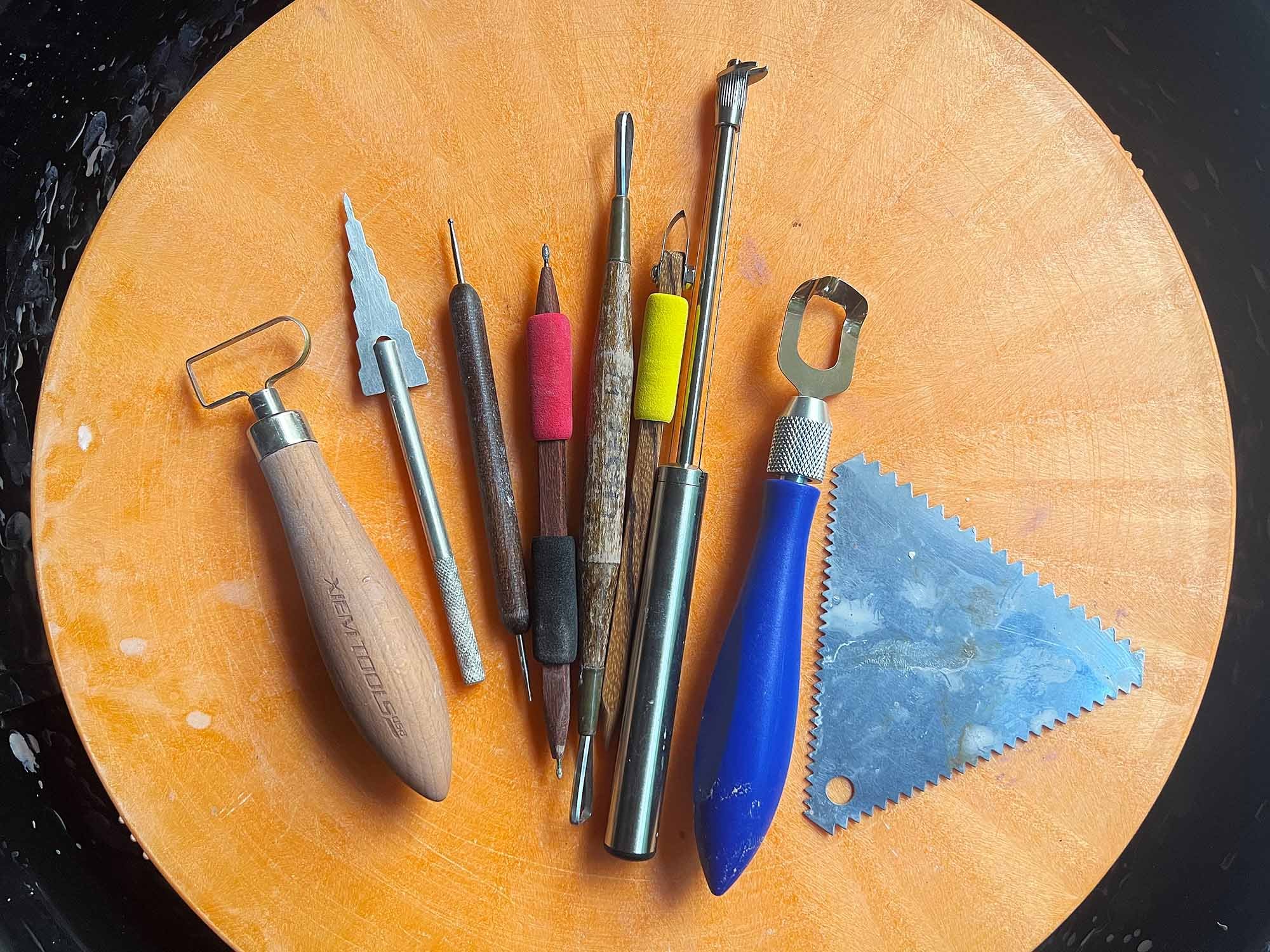A Time for New Dreams, published in 2011 by Ben Okri, contains 22 short essays on poetry, art, magic, childhood, the future, hospitality, and new dreams. There’s also a piece of experimental prose on the the first African masks that Picasso encountered, which is recommended reading if you love Picasso or early Modernism. The whole book is a great read for anyone, especially those who are writing, composing, or making art.
I learned about the book from the profile of artist David Hammons published in December 2019 in the New York. Here’s a few sentences from that piece:
Ben Okri, a Nigerian-born poet and novelist who lives in London, learned, in 2014, that David Hammons wanted to meet him. Hammons had been deeply impressed by a collection of Okri’s essays called “A Time for New Dreams.” (In a Japanese restaurant last winter, Hammons wrote the book’s title on the paper that his chopsticks came in, handed it to me, and said, “I want you to read this.”)
Anything that David Hammons is endorsing is definitely worth checking out!
Below is the first section of A Time For New Dreams, by Ben Okri. (Shop the book at Amazon)
Poetry and Life
1
Heaven knows we need poetry now more than ever. We need the awkward truth of poetry. We need its indirect insistence on the magic of listening.
In a world of contending guns, the argument of bombs, and the madness of believing that only our side, our religion, our politics is right, a world fatally inclined towards war — we need the voice that speaks to the highest in us.
We need the voice that speaks to our joys, our childhoods, and to the Gordian knots of our private and national condition. A voice that speaks to our doubts, our fears, and to all the unsuspected dimensions that make us both human and beings touch by the whisperings of the stars.
2
Poetry is closer to us than politics, and is as intrinsic to us as walking or eating.
We are, at birth, born into a condition of poetry and breathing. Birth is a poetic condition: it is spirit becoming flesh. Death is also a poetic condition: it is flesh becoming spirit again. It is the miracle of a circle completed, the unheard melody of a life returning to unmeasured silence.
Between birth and death what are our daily moments but a double condition that is primarily poetic: the odd conjunction between inner and outer, between that inner sense of timelessness and that outer evidence of transience.
3
Statesmen talk about matters of state; poets help us to resonate with the fundamental rhythm of life, the iambics of walking, the elliptical strophes of every unique way of talking, the mysterious pulse of living.
Poetry begins in us an inner dialogue. It suggests a private journey to one’s own truth.
Let us bring together the voices of poetry from all over the world, and make our hearts a festival, a dreaming place, and our minds an academy of essentials under the stars.
4
Poetry is not just what poets write. Poetry is also the great river of soul-murmurings that runs within humanity. Poets merely bring this underground river to the surface for a moment, here and there, in cascades of sound and suggested meaning, through significant form.
5
The ancient oracles may be silent; and we may no longer believe in the many ways that the gods speak to us, or through us. But living means that we are the focus of many pressures: the demands of society, the strange pressures of being itself, of yearnings, inexplicable moods, dreams, and of feelings powerful with all the currents of mortal life.
6
We concentrate too much on our differences. Poetry returns us to the surprise of our similarities. It brings us back to the obscure sense that we are all members of a far-flung family, sharing feelings both unique to us and oddly universal.
We need more poetry than politics. But we need to constantly raise the possibilities of poetry. Poetry will not necessarily change the world. (Tyrants have been known to be poets, that is to say bad poets.) But so long as our poetry sends our minds into realms of gold and questions, and touches our deep and tender humanity, then it will always be a force for beauty, for good, in the world, neutralizing slowly the noise of guns and hatred.
7
The reason for the exalted condition of poetry is simple. Poetry is a descendant of the original word which mystics believe gave the impulse for all creation.
Poetry, at its highest, has alive in it, even in homeopathic doses, the creative power of the universe. Poetry incarnates that which shapes, changes, transforms. It makes something from what seems like nothing. How insubstantial words are! Who can weigh a word on a scale, even against a feather of truth? And yet see how much words weigh in the heart, in the imagination, in dreams, echoing down the ages, as durable as the Pyramids. Words, lighter than air, are as mysteriously enduring as lived time. Poetry hints at the godlike in us, and cause us to resonate with high places of being.
8
Poets want nothing from you, only that you listen to your deepest selves. Unlike politicians, they don’t want your votes.
True poets just want you to honour the original pact you made with the universe when you drew your first breath from the unseen magic in the air.
Excerpted from A Time For New Dreams, by Ben Okri, originally published in 2011.
If you haven’t read anything by Ben Okri and you enjoyed this, you might also want to try his masterful novel The Famished Road.
Click here to find The Famished Road at bookshop.org
Click here to find at Amazon
Click here to find at abebooks
Filed under #inspiration, our first in a series of posts on inspirational texts for artists and makers. For more posts, click here.
